These days, there seem to be more and more parallels between our world and those of classic dystopian fiction. But with its commentary on women’s rights and reproductive freedom, perhaps Margaret Atwood’s The Handmaid’s Tale strikes the most resonant chord.
It’s been over three decades since Handmaid’s release, but the television series on Hulu—and the current state of political events—have returned focus to the tale, with people paying tribute via Halloween costumes; getting involved with politics, and contemplating how close we are to living in an eerily similar state. As Gloria Steinem noted, “Atwood’s novel should be read—or read again—as a warning about patriarchy” and “is not exactly fiction.”
The 21 books below will give you more food for thought—and the same bone-chilling fear of what just might lie ahead.
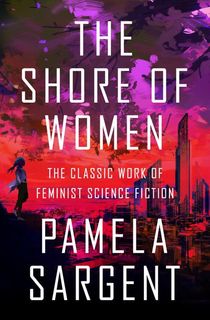
The Shore of Women
In the post-war future, women are goddesses, calling all the shots and using men only for procreation. Exiled to the outskirts of the city, Birana now lives among the male population and soon meets Arvil. Like Offred and Nick, their friendship turns romantic and, as the couple tries to evade their oppressive leaders, they realize the nature of men and women is not what they thought.
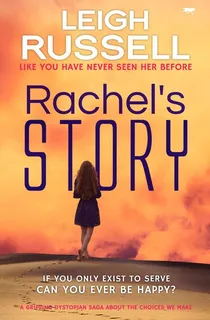
Rachel's Story
This dystopian thriller tells the tale of Rachel, a young girl who relies on her mother for survival in their post-apocalyptic world. But when her mother is killed, Rachel is forced to join The Programme, where young girls are given fertility treatments.
Knowing her options are to be used as an incubator or venturing off into the unknown, Rachel chooses the latter. But while leaving grants her freedom, her safety is far from guaranteed.
Related: Read an Excerpt From Rachel's Story on The Portalist

The Book of Joan
A 2017 hit, The Book of Joan is the inventive reimagining of the Joan of Arc legend. After a series of violent wars, the survivors flee to CIEL, a platform hovering just above the earth’s now-radioactive surface. Since the disaster, humanity has become sexless and hairless—more creature than human—and fallen under the reign of a misogynistic dictator. But when a band of rebels rises, the world’s fate lies in the hands of one powerful girl-warrior named Joan. Like The Handmaid’s Tale, The Book of Joan is a “riveting, ravishing, and crazy deep” exploration of gender fluidity, and the complexities of the human condition (Cheryl Strayed, New York Times-bestselling author of Wild).

The Book of the Unnamed Midwife
A selective virus has decimated the female population, increasing childbirth and pregnancy fatalities. As the men gain control, Midwife’s nameless protagonist sets out to free the enslaved women from their captors. Dressed as a man, she covertly administers birth control and medical advice while dodging the men trying to harm her. Elison’s world is “gripping and grim”—and very reminiscent of Atwood’s Gilead—as one woman battles the commoditization of female sexuality (Publishers Weekly). Be sure to check out the follow up novel, The Book of Etta.

The Female Man
The Female Man jumps from timeline to timeline, dystopia to dystopia, as the lives of four different women intersect. Where Jeannie is desperate for marriage and male attention, Joanna is a feminist trying to stand her ground in a male-centric world. And where Janet hails from an all-female society, Jael comes from a future where the sexes are segregated and at war. As the relationships between these women grow, Russ shows how gender roles and identities evolve as time passes and cultures shift.
Related: 10 Dystopian Series You Haven't Read Yet But Should, from The Portalist
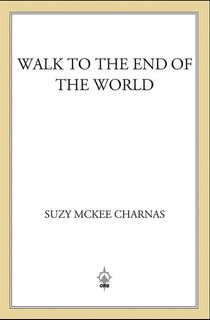
Walk to the End of the World
Years ago, a catastrophic event destroyed the world. From its ashes, emerged a new society called the Holdfast. Here, women, or “fems,” are like Atwood’s “Handmaids”: pieces of property, breeders, and scapegoats for the disaster that laid waste to the world. Through the eyes of three men, we come to learn about life in the Holdfast and of the precocious Alldera, a “fem” spearheading an underground resistance movement against the patriarchy.

Native Tongue
By the 22nd century, the 19th Amendment has been repealed. Most women are banned from public life while others serve as “linguists,” bred solely to facilitate interplanetary commerce. But the women of Native Tongue’s dystopian society are hungry for freedom and, in a revolution similar to “Mayday,” create their own language. Native Tongue is more than an “absolutely compelling” feminist story, but a testament to the power of words and language (Women’s Review of Books).
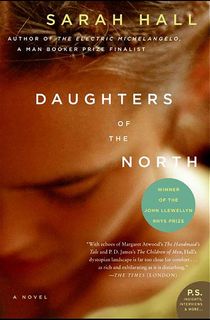
Daughters of the North
Sister lives in post-apocalyptic England, where the Gilead-like “Authority” controls women’s reproductive health. Disguised as a protective measure against overpopulation, the “Authority” requires the sterilization of any woman of childbearing age. Traumatized by her procedure, Sister flees to the female utopia of Carhullan, only to realize it is not so dissimilar from the place she left behind. A haunting page-turner, Daughters of the North offers a sharp “feminist commentary on war, gender, politics, and identity” (Publishers Weekly).

The Big Lie
Nazi-held England has hardly changed since the mid-20th century. A woman’s place is still in the home. German blood must stay pure, and any defects are prevented by government-sanctioned hysterectomies. Jessika is a “goody-good” who has never questioned the injustices of her world. But when her friend’s rebellious behavior falls under Nazi scrutiny, Jessika must choose whose life is worth protecting. An “intriguing, engrossing, and frighteningly plausible” mash-up of The Man in the High Castle and Handmaid, The Big Lieis a coming-of-age tale that tackles everything from feminism and sexism to personal integrity and sexual acceptance (Louise O’Neill, author of Only Ever Yours).

Only Ever Yours
Part Stepford Wives, part Mean Girls, part The Handmaid’s Tale, Only Ever Yours is set in a society that prioritizes male pleasure over everything else. Educated in beauty and obedience at “School,” only the most beautiful graduates receive the highest honor: marriage to a wealthy man. Though best friends frieda and isabel (their lower-cased names, further reflections of their status as “things”) are desperate to succeed, frieda’s gradual self-destruction jeopardizes their futures. “Deep, dark, and frighteningly believable,” Only Ever Yours raises important questions about our perceptions of beauty and femininity (Marie Claire).
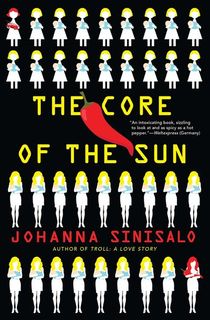
The Core of the Sun
Chances are, you probably haven’t heard of this Finnish modern classic, but it belongs in every Handmaid fan’s TBR pile. There are two classes of women in the new Republic of Finland. The “eloi” are meant for sex and procreation while the “independents,” whose intelligence is a menace to society, are sterilized.
At the center of it all is Vanna, a clever “eloi” searching for her sister as she—wait for it—battles a chili pepper addiction. From a religious cult on the sun to chili pepper prohibition, Sinisalo puts a unique spin on the dystopian genre while being no less astute in her social commentary.
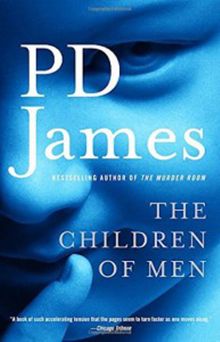
The Children of Men
Just like in The Handmaid’s Tale, the world in Children of Men has been plagued by infertility. After the planet’s youngest person dies, there seems to be little hope for future generations. That is, until Theodore and a group of rebels discover a life-changing secret—a pregnant woman. And while some fight to keep her identity under wraps, others have much more sinister intentions. PD James’ vision of 2021 is “as scary and suspenseful as anything in Hitchcock”—and a perfect read for Handmaid fans (The New Yorker).

The Glass Arrow
While technology has advanced, society has regressed to a caste system that enslaves women. Aya lives freely in the wilderness, but after she is captured by the government she finds herself on the dreaded auction block. When she’s sold to the wealthy Mayor Rykor, Aya begins to plot her escape—and strikes up an unexpected friendship with the mayor’s son. But in a dog-eat-dog world where no one can be trusted, Aya must rise above sexism, violence, and a corrupt system if she’s to regain her freedom. The Glass Arrow is an action-packed dystopian thriller about the beautiful and ugly parts of humanity—and the power of the human spirit to overcome.

Woman on the Edge of Time
Doctors think Connie has gone insane—but she simply knows a frightening truth. A time-traveling envoy has given her glimpses of two possible futures. One is a utopia where everyone is equal. The other is its nightmarish opposite, a Handmaid-esque society where humans are little more than objects. With the fate of the world on her shoulders, Connie embarks upon an “absorbing and exciting” adventure that will require every ounce of her moral courage (The New York Times).

Into the Forest
Similar to The Big Lie and Only Ever Yours, Into the Forestrevolves around two young women living in a post-apocalyptic world. As sisters Nell and Eva struggle to survive in the dystopian wilderness, they must also come to terms with their encroaching adulthood. Blending elements of The Handmaid’s Tale and Cormac McCarthy’s The Road, Into the Forest examines complex relationships—how they change, survive, or end—in an environment where everyone must fend for themselves.
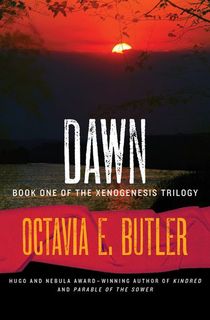
Dawn
Ever since the nuclear holocaust, the alien Oankali have kept humans unconscious. Reawakened after one hundred years, the survivors—including a woman named Lilith—find that their planet is not the one they remember. Just as Offred is a minority in the Republic of Gilead, Lilith must also find her place in a world where she has suddenly become the outsider. Dawn is yet another stunner from the award-winning author of Parable of the Sower that will make you question what it means to be human.

The Gate to Women’s Country
For Stavia’s entire life, women have ruled the world and presided over all the secrets of civilization. Warfare is the only duty left to men, who either live outside the city walls or in military garrisons. Over time, the men have grown curious, wanting access to the knowledge that only their female rulers posses. So when Stavia reveals the secrets of Women’s Country to a young boy, the long-kept peace breaks out into a battle of the sexes. The Gate to Women’s Country “provokes a new look at old issues,” like our definitions of “femaleness” and “maleness” (The Washington Post).

Ammonite
The virus that struck Jeep did more than kill every living man—it altered the female DNA. Terran Company has arrived with a new vaccine, but their visit quickly turns awry. Only one of them, an anthropologist named Marghe, continues their mission, hoping to understand the Jeep natives and their disease. Ammonite’s cast of characters, while all women, are diverse in their personalities, and Griffith manages to smash gender stereotypes while telling a “gripping, many-layered, ever-changing” story (The New York Times Book Review).

Y: The Last Man
From Lost writer/producer Brian K. Vaughan comes the most critically-acclaimed comic series of the past decade. Yorick Brown and his pet monkey are the last males, human or beast, left alive. Now, Yorick is homeward bound to reunite with his fiancée, mother, and sister. But not all is smooth sailing as the pillars of civilization continue to crumble, and Yorick finds both allies and enemies in government officials, scientists, and rebels. Y: The Last Man is an inverse of The Handmaid’s Tale, but its socially relevant message—and thrilling combination of violence, comedy, and romance—will ring true with fans of Atwood’s book.

Glory O’Brien’s History of the Future
Glory has always wrestled with the demons of her past: Will she grow up to be like her mentally unstable parents? Or are there better times ahead? But Glory’s life takes a sharp turn when she has grim visions of the future. The world she sees is as horrific as Atwood’s Gilead, a place where women are stripped of their rights and society is on the brink of war. As Glory fights to save the future and overcome her fears, King poses provocative ideas about feminism, sexuality, the male gaze, and societal pressures on girls.
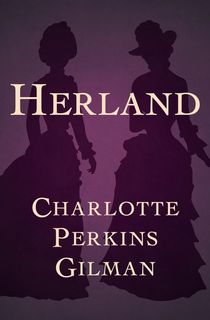
Herland
When three men learn of an all-female society, they are determined to become its new rulers. But what they find is not what they expected. The women of Herland are self-sufficient, not only doing “men’s work” but capable of asexual reproduction. Such independence forces the men to reevaluate their notions of a woman’s role in society. Published in 1915, Gilman’s argument for gender equality was revolutionary for its time. At once funny and thought-provoking, the novel asks us to recognize that women are just as valuable—and intelligent—as any man.
Featured Photo: Still from The Handmaid's Tale (2017), via Hulu














